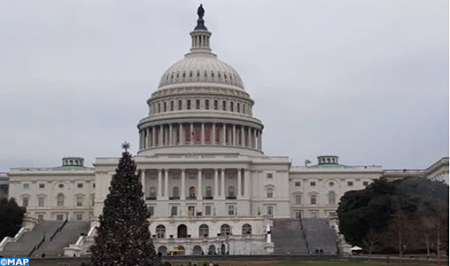The short answer—that probably Americans on both sides of the aisle will likely agree on, albeit for different reasons—is that the November midterms are critical to the long-term economic sustainability of the country and the viability of the US as a democracy and bastion of freedom.
As uncertainty increases with OPEC+’s decision to cut back oil production by 2 million bpd, something that has very little to do with President Biden, despite a diplomatic effort over months to avert it, and everything to do with the oil cartel desperation to keep cashing in on high prices, Republicans continue to focus on high inflation, gasoline prices rising again, and economic uncertainty.
Meanwhile, Democrats, especially women, are responding in great numbers to the Supreme Court’s June reversal of Roe v. Wade, as it took away the Constitutional right to privacy that had over the last half century underpinned so many other rights, including the rights to abortion, contraception, and interracial marriage, to name a few.
Without a federal standard addressing a right to abortion, states are now free to set their own policies, either banning or protecting abortion. Five states now have Constitutional amendments restricting state courts from recognizing a right to abortion. Ten states have state supreme court rulings recognizing a right to abortion in their state Constitutions, although these rulings could be overturned, just like Roe.
Voters in four states will vote in November on ballot initiatives related to state constitutional rights to abortion. Three states (California, Michigan, and Vermont) will vote on ballot initiatives that, if approved, would amend those states’ Constitutions to establish an explicit right to abortion. One State (Kentucky) will vote on a ballot initiative that, if approved, would amend its state Constitution to outlaw abortion.
Republican lawmakers and candidates running for federal office are advocating a national ban on abortion, a distinct possibility if Republicans win the House and Senate. The stakes are high on both sides.
Dr. Robert Schmuhl, Chair in American Studies and Journalism at the University of Notre Dame, focuses on a much bigger picture, however. In a newly expanded book, he steps back from the everyday issues to detail the importance of the upcoming midterms in their historical context.
In The Glory and the Burden: The American Presidency from the New Deal to the Present, Schmuhl chronicles the forces that have shaped the presidency since 1933, assessing the election of Joe Biden in 2020, the transition of the White House from Donald Trump to Biden, and Biden’s first several months in office.
He evaluates the impact of the Twenty-Second Amendment to the Constitution, which imposed a two-year term limit for American presidents, and the influence of news sources and social media both on what presidents did and the consequences of that behavior.
MAP asked him about the conventional wisdom that in the midterm elections the incumbent party typically loses the House and Senate.
“Since 2016, conventional thinking has been turned on its head,” he said. “American politics has changed profoundly. Call it, if you will, the Donald Trump effect, with its tradition-busting, standard-challenging, custom-denying.”
According to Schmuhl, because historical patterns have been disrupted, making predictions is more difficult than in the past. One possible scenario is that “Republicans will win the majority in the House, while the Senate stays at where it currently is or one party has a very slim majority.”
Gerrymandering is playing a significant role. “Republicans have been able to draw House districts favorable to them, and that’s hugely consequential.”
With respect to other factors likely to sway the outcome, Schmuhl said that “voters will have to decide whether current issues—inflation, gas prices, border problems, crime—have more influence or weight than what might be considered longer-term ones—women’s freedom, the assaults on democracy, the urgent need to deal with climate change. How someone judges today’s realities in comparison to concerns with greater futuristic implications will be critical.”
In the bigger picture, this year’s midterms are important to the future of the US both as a democratic republic and a world leader, according to Schmuhl.
“The 2022 midterms are much more significant than other ones in recent history for one paramount reason,” he said. “Competing in this election are many Republican candidates for the Senate, House of Representatives, Governorships and state offices who deny the results of the 2020 presidential election. They, in effect, refuse to accept the outcome of a free and fair election or a peaceful transfer of power. Should these candidates prevail, it’s anyone’s guess what might happen in 2024 and beyond.”
Schmuhl asserted that this year’s midterms will test America in some very fundamental ways. First, there is “serious concern of violence erupting from all of the political divisions,” he said.
Second, he said the United States today is really “the divided states, weakening the nation internally and in the eyes of the world.” He warned that “exercising world leadership in an anti-democratic environment will be next to impossible.”










